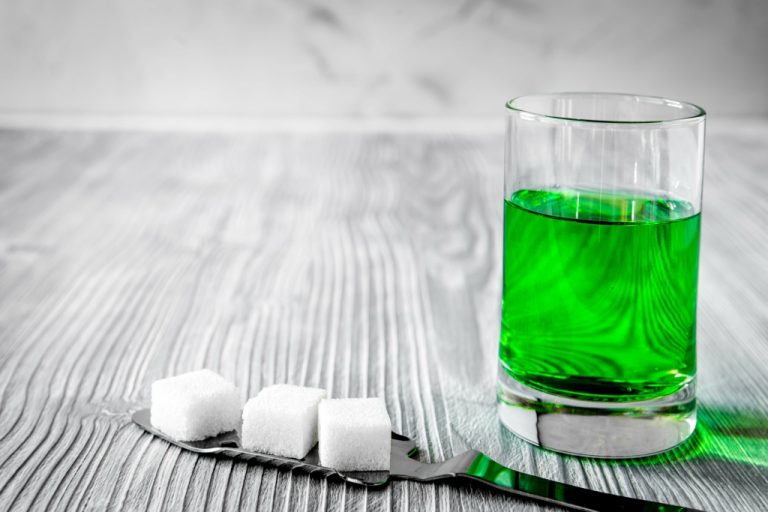Nutrition Guide For Addiction Recovery
Also, self-reflection and taking care of your recovery can help heal deep scars that might led to your drinking pattern. If obesity develops, it increases the risk of many different diseases. Malnutrition can be even worse, suppressing your immune system and leaving you unable to respond to even minor health problems. Prolonged alcohol use can also cause a severe deficiency in thiamine, a nutrient vital to brain health; this deficiency can lead to permanent brain damage. Instead of weight gain, those with a very severe alcohol addiction may experience malnutrition. This can occur when an alcohol addiction becomes so preoccupying that the person with the addiction fails to eat like they should, getting most of their calories from alcohol.

Diet for Recovering Alcoholics: Nourish Your Recovery
Because heavy drinking and alcohol detox can cause vitamin deficiencies, the use of certain vitamin and mineral supplements during detox http://samarahunter.ru/forums/showthread.php?t=3134 is commonly recommended. Recognizing the profound impact of mental health on the recovery journey, we are committed to providing assistance tailored to individual needs. Vitamins B6 and B12 play important roles in producing blood cells and supporting the health of the nervous system. Other good sources of vitamin B6 include bananas, avocados, and peanuts. Vitamin B12 is only found in animal byproducts, which includes dairy and eggs. Consult your healthcare provider if your drinking can compromise the medication or supplements you’re currently taking and vice-versa.
- Alcohol consumption can lead to iron deficiency, which may cause anemia, fatigue, and a weakened immune system.
- It is also important to remember that supplementation should support, not replace, a balanced diet.
- Malnutrition can be even worse, suppressing your immune system and leaving you unable to respond to even minor health problems.
- Pinnacle Health Group is available 24/7 to discuss your treatment options.
What to Expect from Alcohol Recovery
When the liver is burdened by excessive alcohol consumption, it struggles to store, metabolize, and synthesize various vitamins required for healthy body functions. It may be helpful to increase your intake of vitamins such as B1, B12, C, and E, which can assist in liver recovery and reduce alcohol-induced oxidative stress. Proper nutrition is essential in recovering from alcohol addiction.
How Vitamins Can Help Recovery from Alcohol Abuse
Carbohydrates, or carbs, are another nutrient that has been targeted for heavy reduction or elimination by diet fads. However, carbohydrates are essential for the function of the central nervous system and brain. They are so important that the Dietary Guidelines for Americans suggests 45% to 65% of daily calories should come from carbs. Dihydromyricetin (DHM) is an over-the-counter herbal remedy well-known for soothing hangovers. Research shows that DHM can increase the efficacy of enzymes that metabolize alcohol, helping your body to eliminate it faster.

Magnesium and Zinc Benefits
The vitamin B complex in general, and particularly vitamins B1 (thiamin), B3 (niacin) and B5 (Pantothenic Acid), play a role in turning sugars into energy. Niacin, or vitamin B3, can also be found in pork, as well as in fortified cereals, salmon, and swordfish. Whole grains, milk, eggs, and liver are perhaps the best food sources for B5, or Pantothenic Acid. Mixing alcohol and supplements does not cause direct interactions but can lead to significant vitamin deficiencies. Vitamin C can ease withdrawal by increasing the alcohol clearance rate9.
Vitamins to Take After Drinking
- Long-term alcohol use can cause vitamin A levels to fall in the liver, the primary organ that breaks down alcohol and stores vitamin A.
- Adding this nutrient can help boost mood in recovery and reduce withdrawal symptoms, making it one of the best supplements for alcohol cravings.
- Alcohol consumption can negatively impact your body’s ability to absorb and utilize essential vitamins and nutrients.
- Zinc can help strengthen the immune system and help improve your mood.
The best option is to eat a nutritious diet that will foster physical and mental health/link and improve your chances for long-term sobriety. Furthermore, some research suggests magnesium may be beneficial for helping restore healthy liver function and mitigating alcoholic liver disease. In fact, it is estimated that an alcohol abuser typically gets 50 percent or more of total daily calories from alcohol. Any food calories are typically consumed in the form of junk foods.
By one to three months, liver function and energy levels have significantly improved, but the risk of relapse remains substantial, necessitating extensive support networks. After the abstinence stage, there is a two-year stage called the Post-Acute Withdrawal stage. Control of mood swings, anxiety, and sleep disturbances requires both mental health focus and persistence. http://g-ost.ru/46551.html This level emphasizes the mental strength required to persevere on the road to recovery. B-vitamins are a good place to start for recovering addicts, who may have deficiencies in these cofactors needed to produce neurotransmitters and feel-good hormones.
How Nutrition Helps With Recovery

New research shows treatment is beneficial even if patients have just one symptom. Most importantly, the treatment saves brain function and can help to stave off the even more serious Wernicke-Korsakoff syndrome, which permanently damages the https://cartica.ru/krasota/holodnyj-rozovyj-blond.html brain. A holistic approach to alcohol use disorder treatment also addresses mental health, cognitive aspects, and behavioral therapies. These therapies aim to help you understand the underlying causes of your addiction, change unhelpful patterns of thinking, and develop healthier coping mechanisms. The liver plays a critical role in metabolizing alcohol and getting rid of toxins in the body.
Sleep patterns, mental clarity, and most severe physical symptoms improve within two to four weeks. After one to three months, digestion and energy improve, and mental stability returns. At six to twelve months, physical health improves, cognitive functioning improves, and emotional well-being stabilizes. After a year, patients frequently have a fully stable condition with improved relationships and overall quality of life. When dealing with alcohol use disorder, a comprehensive treatment plan is essential. Addiction medicine focuses on finding the most effective ways to help you overcome alcoholism.